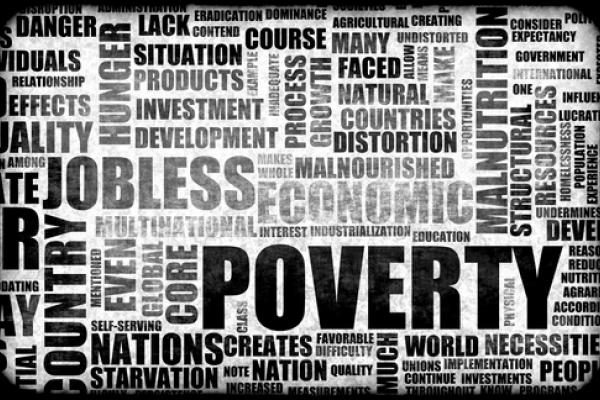When I was a 17-year-old senior in high school, I was in several Advanced Placement courses. As the school year drew to a close, I wanted to take the AP test that would allow me to attain college credit. The AP tests, however, were very, very expensive. I went to my guidance counselor. She said that they could waive the fees for the exams if I qualified for the school’s free lunch program.
I had avoided the free lunch program for years. I had been on the free lunch program in elementary school and middle school but was always embarrassed by it. So when I got to high school, I didn’t apply for it. I picked up a part-time job so I could pay for my own lunch. But now, I wouldn’t be able to take my AP exams if I didn’t fill out the free lunch program form.
So I agreed to fill out the form. Later that day, my guidance counselor sent a student aide with the form to my social studies class room, where in front of the entire class, she declared that I needed to fill out the free lunch form. I remember the shame of not only my classmates laughing at me that day, but my high school teacher bursting out in laughter as well.
My family was poor. My father abandoned our family when I was in elementary school, leaving my mom to raise four children by herself. I don’t know of many people that worked harder than my mom. She worked two jobs for many years to keep our family together. She worked in an inner city Baltimore sub shop (the kind of store with the thick Plexiglas barrier and the small turnstile to exchange money and food). After her 10-hour day shift, she would head over to the inner city nursing home to work the graveyard shift as a nurses’ aide. She would return home at seven in the morning to make us breakfast, grab a quick nap, before heading back to work at 10 a.m. She worked nearly 20 hours a day, six days a week. She insisted on keeping the Sabbath holy and would reserve all day Sunday for service at our church. A devout Christian woman with an incredible work ethic.
Despite her long hours of work, she had trouble making ends meet. Our family lived in a small two-bedroom apartment in a rough inner city Baltimore neighborhood. For long periods of time, there would be nothing to eat in our refrigerator. I tell my 11 year-old daughter, who is coming dangerously close to being as tall as I am, that if I had had proper nutrition when I was her age, she would never be close to me in height.
So back in the 1980s, my mom applied for food stamps. We used them to buy groceries and food. We needed this safety net to eat, to survive.
Years later, I remember sitting in an evangelical seminary classroom as a student in a Christian ethics class. The topic was government programs that helped the poor. I sat listening to the vitriolic venom spewed by these good Christian men about freeloaders and welfare queens. I sat in stunned silence listening to future pastors judging people they did not know — sitting in their seminary ivory tower casting dispersion on all these freeloaders.
A few weeks ago, North Park University (where I am now privileged to serve as a member of the faculty) sponsored a viewing of The Line, a short feature documentary produced by Sojourners. The film showed images of everyday poverty throughout American (apparently a topic that is taboo in presidential politics). Seeing the courage of these individuals sharing their struggles emboldened me to share my story. So this tenured professor who holds four advanced degrees from two Ivy League institutions with a fifth advanced degree on the way, shared with a group of undergraduates that he had once been on food stamps. That I wouldn’t have made it through my education without government help – through food stamps, free lunches, Pell grants, and government-backed student loans.
So maybe my story makes me a part of the 47 percent that has grown dependent on government. Maybe some will view me as the offspring of a welfare queen. Or maybe I fulfill a new political category tinged with racial overtones: the food stamp professor.
Or maybe my story makes me an American.
Rev. Dr. Soong-Chan Rah is the Milton B. Engebretson associate professor of church growth and evangelism at North Park Theological Seminary in Chicago and the author of The Next Evangelicalism: Freeing the Church from Western Cultural Captivity (IVP Books, 2009) and Many Colors: Cultural Intelligence for a Changing Church (Moody, 2010). Read more from him at www.profrah.com.
Poverty background, kentoh / Shutterstock.com
Got something to say about what you're reading? We value your feedback!
